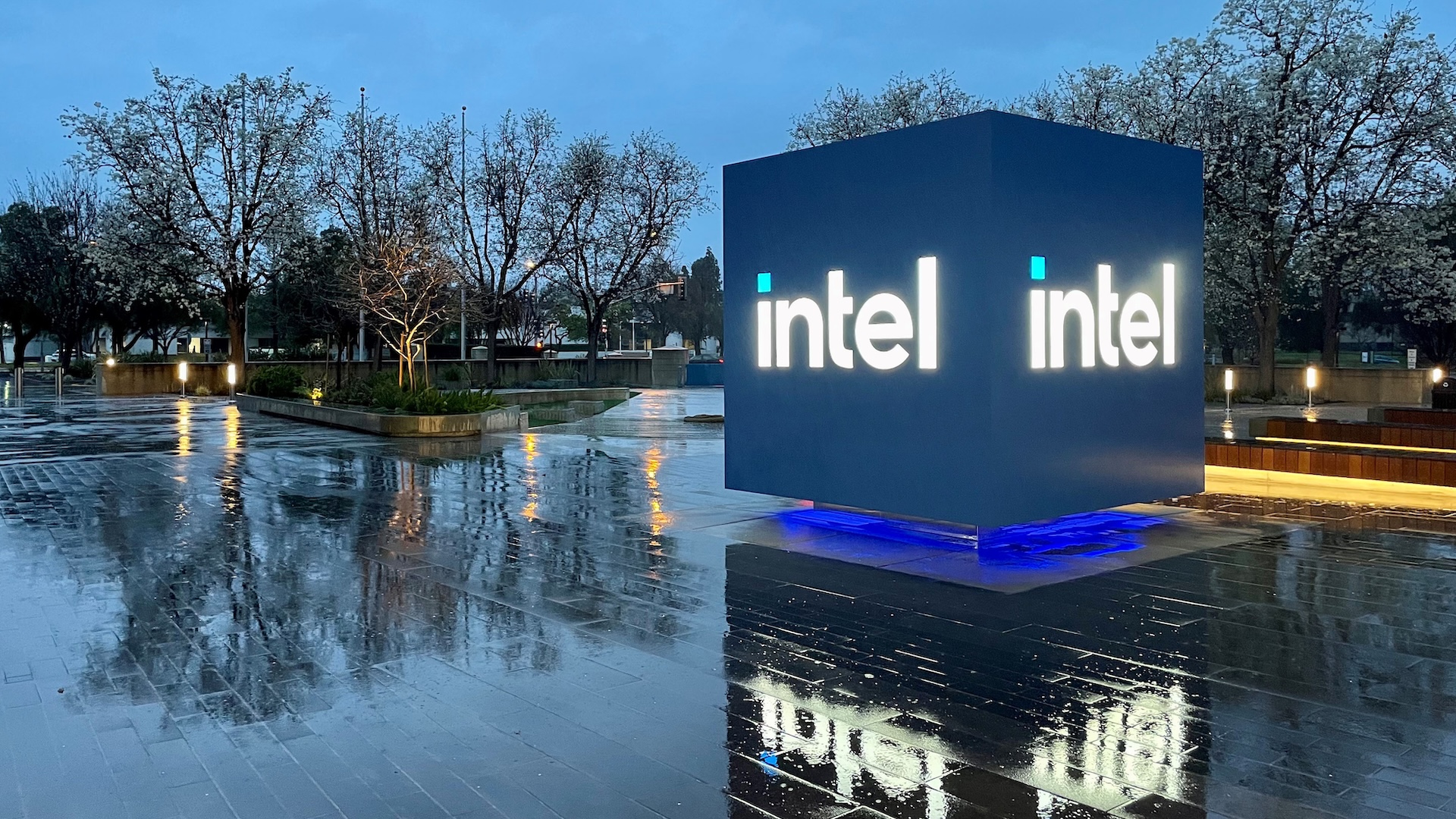Intel shareholder lawsuit dismissed — complaints stemmed from single-day $32B devaluation in 2024
But they can refile their lawsuit.

A federal judge on Wednesday dismissed a lawsuit against Intel, which accused the company and its management of hiding financial troubles of its semiconductor manufacturing division in 2023, reports Reuters. The U.S. District Judge Trina Thompson in San Francisco ruled that plaintiffs failed to present evidence that Intel and its executives committed any wrongdoing. The case was dismissed without prejudice, meaning the plaintiffs can file an amended complaint with stronger evidence.
Plaintiffs had argued that Intel and its then-CEO Pat Gelsinger and then-CFO David Zinsner concealed a $7 billion loss of its Intel Foundry unit in 2023, which led to stock inflation as well as a consequent massive $32 billion drop of the company's market capitalization in April 2024, when the company disclosed losses of its newly formed Intel Foundry division for 2023 and Q1 2025.
Starting in Q1 2024, Intel implemented its 'internal foundry' model, making its product divisions and external clients purchase manufacturing and packaging services from Intel Foundry, a separate division within the company. Before this, Intel only reported results for Intel Foundry Services (IFS), which catered exclusively to external customers.
On April 2, 2024, Intel fully disclosed its segment reporting changes and had to recast past financials, revealing that Intel Foundry lost $7 billion in 2023. This revelation triggered a sharp decline in Intel's stock. The court determined this loss was not solely tied to Intel Foundry Services, the division responsible for making chips for outside companies, contradicting investors' claims, but was attributed to Intel Foundry, a division that worked with both Intel and external customers
The lawsuit also challenged statements by Gelsinger and Zinsner, particularly Gelsinger's claim of 'significant traction' and 'growing demand' for the foundry business. The court ruled these statements were not misleading because they referred to specific customer engagements rather than overall financial health of Intel and Intel Foundry.
Plaintiffs also pointed to Intel's 26% stock drop after announcing layoffs and a dividend suspension in mid-2024, claiming it was evidence of misleading practices. However, the court ruled that a stock decline alone is not proof of fraud, as Intel has always had competitive challenges and publicly discussed its cost-saving strategy and restructuring plans.
Although the lawsuit was dismissed, the judge will allow investors to revise their complaint and refile. Intel declined to comment on the ruling, while legal representatives for the shareholders did not immediately respond to inquiries.
Get Tom's Hardware's best news and in-depth reviews, straight to your inbox.

Anton Shilov is a contributing writer at Tom’s Hardware. Over the past couple of decades, he has covered everything from CPUs and GPUs to supercomputers and from modern process technologies and latest fab tools to high-tech industry trends.
-
ThisIsMe That all happened because ignorant people listened to other ignorant people speak of Intel as if it is a foundry. That's like saying Apple is a software company.Reply -
AkroZ Reply
Well, they invested due to the foundry strategy and the loss comes from the foundry. Intel have enthusiasms and needed funding but failed to land contracts (and deliver promises?).ThisIsMe said:That all happened because ignorant people listened to other ignorant people speak of Intel as if it is a foundry. That's like saying Apple is a software company.
The Intel strategy is to transform into the Foundry, they want to beat TSMC.
Intel communication has misleaded investors, but those types of investments are always risky, they just have been swayed by Intel dream which is transforming into a nightmare. -
thestryker Reply
I find it extremely ironic how many people don't seem to grasp what was going on and what was said. Intel said that they weren't going to have a node ready for external customers until 18A. Intel 18A is the last node on Gelsinger's 5N4Y plan which would have ended in 2025.AkroZ said:Well, they invested due to the foundry strategy and the loss comes from the foundry. Intel have enthusiasms and needed funding but failed to land contracts (and deliver promises?).
Except it didn't as that's what this case was exactly about and the plaintiffs couldn't prove with what evidence they had.AkroZ said:Intel communication has misleaded investors, but those types of investments are always risky, they just have been swayed by Intel dream which is transforming into a nightmare. -
TerryLaze Reply
No they did not, nobody in their right mind would do that, you would wait until just before all FABs are ready and invest when stocks are low and about to increase due to the FABs starting production.AkroZ said:Well, they invested due to the foundry strategy and the loss comes from the foundry.
They invested because somebody told them to and they lost money because somebody didn't explain to them what's going on.
Intel themselves came out before they started and told people that they will be spending a lot of money on fabs and they won't be making a lot of money back during that time, so all investors that where only in it for the quick buck should have known to pull out before the stock crashed.
Well somebody didn't tell these people and that made them mad.